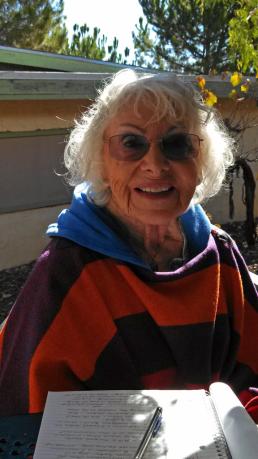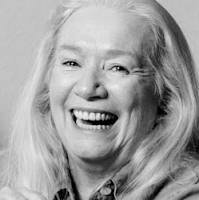Do you sometimes feel that your time is past? It happened as I read Scott Adams’ new book, How to Fail at Almost Everything and Still Win Big. It’s funny and informative, but some of his advice is geared toward younger people; for example, how to persuade more effectively, overcoming shyness, and the importance of good grammar. (Before you question the value of the entire book, he also talks about the impact of social biases; tracking your personal energy level as the most important metric in your pursuit of a successful life; and his belief that the mind is a “moist computer you can program.”)
But back to my original problem. We, the People of the Second Half, have harder questions that I rarely see addressed, certainly not in popular best-sellers. Here are a few:
- How do you cultivate a happy, productive life when half of it (or more) is over? How much work do you put into this effort? Should you speed up or slow down?
- How do you feel confident in your maturity when you’re denigrated for it?
- Where do you go to find answers in this youth-obsessed society?
Luckily, I have answers for you, because I found a teacher.
Last Friday, at a writing retreat, I sat with a wise friend, Dorys, and asked about her life at eighty-five. She admitted that sometimes it strikes her hard that “I’m fifteen years away from being one hundred!” And yet, her eyes danced with humor and kindness as she answered the pathetic questions of this 59-year-old.
One was about being alone long-term. In response, she told me about a day she spent recently in which the phone did not ring, no one knocked on her door, and she had no reason to get in her car and drive anywhere. Instead of feeling lonely, Dorys reveled in the solitude. How lucky I am, she thought, to have one entire day all to myself, where I don’t have to go anywhere or do anything, no obligations, a whole landscape to explore without interruption, free to do whatever I want. With just her kitty for company, she had a day of golden solitude.
A therapist once told me that to live happily alone, we must first become ALL ONE. Whole. Dorys says that is a major prescription for life. Here are the highlights of her advice to me:
- Stop overthinking the aloneness question. We expand what we focus on, and thus might give too much power to the fear. With maturity, this and other issues won’t seem insurmountable.
- Don’t underestimate the power of distraction when the blues or loneliness hit you. She might escape into a movie or two. Usually, by the time the movie ends, her attitude has shifted.
- “Give of yourself to someone, or fill a need,” Dorys says. “I volunteer in a hospital one day a week; I also volunteer at the community theater, and I’m a political advocate working with our local politicians to make improve our community. I participate in an annual variety show. I am learning Spanish.”
- “My philosophy is to choose where you want to spend your time and with whom. The minutes we are given are precious.”
- And along those lines: “Wasting (time) worrying about what might be is like preparing yourself for it to happen.”
- “Find your authentic self or seek out your passion, embrace it and learn to fill the void you are consumed with.”
- “Keep your life in perspective. You may be having a blue afternoon, but there’s someone out there who’d kill for your blessings.”
I appreciate Dorys. She’s an inspiration and a source of comfort. Life is complicated, but if you find a good teacher you might feel happier and more at peace with the unknowable. Manage what you can and develop the confidence to leave the rest alone.
Do you have any suggestions for living well in the second half?









Recent Comments